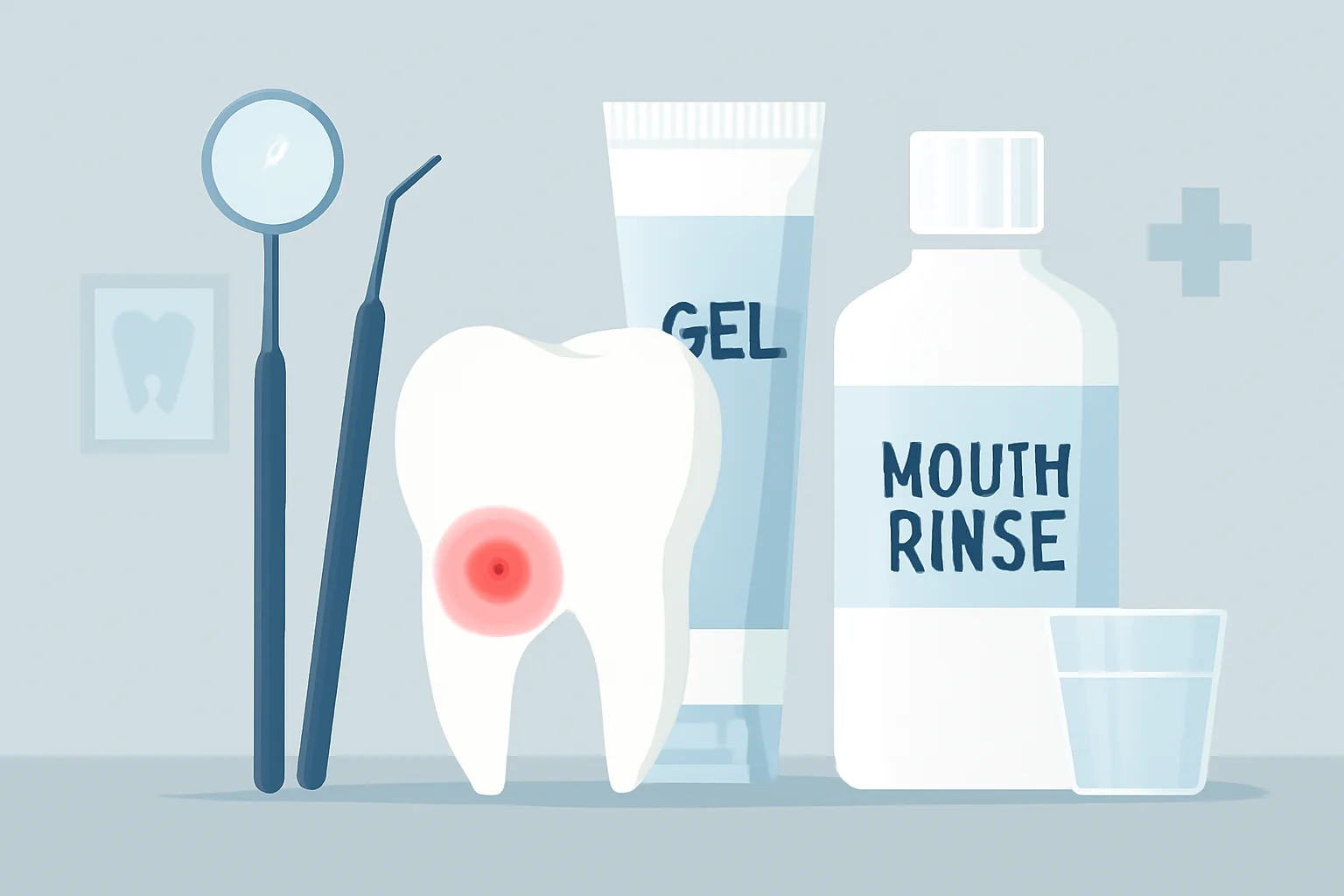
Management and Prevention of Aphthae: Tips for Oral Surgical Care
The health of the oral cavity is of paramount importance, as the mouth is not only a site for eating but also for communication and social interactions. Various issues that can occur in the mouth, such as canker sores, mouth ulcers, or other lesions, often cause discomfort and pain. These complaints can burden the patient both physically and psychologically, as oral pain affects eating and self-confidence. Oral surgery, as a specialty, deals with various diseases of the oral cavity and offers numerous methods for managing these problems. The difference between canker sores and mouth ulcers is also significant, as different underlying causes may exist, and various treatment options are available. People often seek information about these issues to better understand why they occur and how they can be treated. Knowing the correct diagnosis and appropriate treatment methods can help reduce pain and speed up recovery.
Canker Sores: Formation and Symptoms
Canker sores, also known as aphthous ulcers, are painful, round or oval lesions that appear on the mucous membrane of the mouth, often white or yellow in color, surrounded by a red inflammatory area. The exact causes of canker sores are not yet fully understood, but numerous factors may contribute to their formation. These include stress, hormonal changes, the consumption of certain foods such as citrus fruits or spicy foods, and vitamin deficiencies, particularly in B12, folic acid, and iron.
The most common symptoms of canker sores include pain, which generally peaks 1-2 days after the sore appears. The intensity of the pain varies and often disrupts eating, speaking, and daily activities. Canker sores typically heal on their own within 7-14 days, but pain-relieving mouth rinse solutions or various topical treatments can help alleviate discomfort. Canker sores are not contagious, meaning they do not spread from one person to another. It is important to note that if someone frequently experiences canker sores, it is advisable to consult a doctor, as this may indicate a vitamin deficiency or other health issues.
To prevent canker sores, attention should be paid to nutrition, stress management, and oral hygiene habits. Adequate intake of vitamins and minerals, a balanced diet, and techniques aimed at reducing stress, such as meditation or breathing exercises, can help mitigate the problem.
Oral Ulcers: Causes and Treatment Options
Oral ulcers, also known as oral cavity ulcers, are also painful lesions that can develop in various parts of the mouth, such as the gums, lips, or tongue. The causes of oral ulcers can be diverse and are often related to injury to the mouth, infections, or inflammations. A sudden movement, such as an accidental injury from brushing teeth, can trigger the sore, but viruses, bacteria, or fungi can also be responsible.
Symptoms of oral ulcers include pain, which is usually more severe than that of canker sores, and inflammation around the sore can also be observed. Treatment for oral ulcers depends on the underlying cause and may require different methods. If the sore is a result of an infection, antibiotic treatment may be necessary. Local pain relievers and anti-inflammatory medications can also help alleviate symptoms.
To prevent oral ulcers, it is advisable to pay attention to oral hygiene, proper nutrition, and to avoid injuries, such as consuming rough foods. It is important to consult a doctor if the oral ulcer persists or recurs frequently to receive the appropriate diagnosis and treatment.
Canker Sores and Oral Ulcers: Similarities and Differences
Although canker sores and oral ulcers are both painful lesions in the oral cavity, there are several important differences between them. Canker sores are generally smaller, round or oval in shape, and develop within the mucous membrane, while oral ulcers are often larger and can appear anywhere in the mouth, including the gums and lips.
Canker sores are not contagious, whereas oral ulcers can sometimes develop as a result of an infection and may be transmissible to others. Canker sores often occur due to stress or vitamin deficiencies, while oral ulcers can be caused by injury, viruses, or bacteria.
The treatment options also differ. For canker sores, pain-relieving mouth rinses and topical treatments can be helpful, while the treatment of oral ulcers may involve antibiotics or other medications depending on the underlying cause. Prevention should focus on proper nutrition, oral hygiene, and stress management to reduce discomfort.
Understanding the differences between the two lesions can aid in establishing the correct diagnosis and selecting effective treatment. If there are any oral cavity issues, it is always advisable to consult a doctor to receive the necessary assistance.
Warning: This article does not constitute medical advice. In case of health problems, everyone should follow their doctor’s advice.

